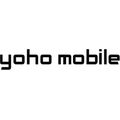

Find the best eSIM for Bosnia and Herzegovina
Compare 4000+ plans from over 120+ eSIM brands

























ESIMDB15 for 15% discount. Limited time only.


















































































































































































































































































Customer Reviews
See what travelers are saying about their Bosnia and Herzegovina eSIM experience. Real feedback from real users to help you pick the best plan for your trip.

“I purchased two Bosnia and Herzegovina (HT Eronet) - 10GB/30Days eSIM packages. The pre-installation process was smooth, but activation at the border wasn’t as trouble-free. Throughout the trip, I often had no internet connection. At one rest stop, I noticed the phone had latched onto the MTEL network instead of Eronet. I tried switching manually, experimented with both automatic and manual APN settings (using the official Eronet APN), but none of it helped—the issue remained the same: sometimes there was internet, sometimes there wasn’t.
Once we arrived in Mostar, things got a bit more stable, but even there the connection frequently dropped—at our accommodation too, for instance. My wife (using a Motorola; I have a Honor) kept pointing out that we had no internet again.
Speed wasn’t an issue when it did work, but I’d recommend going with BH Telecom instead—whenever Eronet failed, my other SIM on BH Telecom had full signal. In some cases, the only way to reconnect was to disable and re-enable the eSIM entirely.”

“Supported countries according to their own search doesn't match the actually supported countries, can't use the eSIM in Bosnia at all.”
Bosnia and Herzegovina Travel eSIM FAQ
Everything you need to know about using eSIMs in Bosnia and Herzegovina
How many travel eSIM brands (providers) are available for use in Bosnia and Herzegovina, and how many prepaid data plans are there?
For Bosnia and Herzegovina, there are 120+ travel eSIM providers and 3800+ prepaid data plans available. With this large assortment, travelers can easily find an eSIM that matches their needs.
Are there any unlimited data eSIM plans available for Bosnia and Herzegovina?
Unlimited data eSIM plans can be found for Bosnia and Herzegovina from several providers. Firsty, Roamify, MicroEsim, abesteSIM, Yesim, Truely, and Yoho Mobile all offer plans that list “Unlimited” data. The plans typically range from one‑day validity up to 30 days and most allow tethering, but they generally include speed limitations or throttling; a few list a specific limit of 5 Mbps. Prices vary widely, with the cheapest option starting at $0.00 with Firsty and the highest tier reaching about $449.07 with Yoho Mobile, so overall plans fall within a range of $0.00 to $449.07.
What are the major mobile networks available for a travel eSIM in Bosnia and Herzegovina?
Bosnia and Herzegovina has three major Mobile Network Operators (MNOs):
- BH Mobile: The largest operator, offering extensive coverage and a range of services.
- m:tel: A significant provider with a broad network and diverse service offerings.
- HT Eronet: A key operator delivering various telecommunications services across the country.
In addition to these MNOs, Bosnia and Herzegovina hosts Mobile Virtual Network Operators (MVNOs) like haloo, which lease access from major carriers to offer mobile services. However, most travel eSIMs rely on the infrastructure of the primary MNOs rather than MVNOs.
Can I get a travel eSIM with a phone number and SMS for Bosnia and Herzegovina?
Yes, travel eSIMs that provide a phone number and SMS capability for Bosnia and Herzegovina are available. The most common options are offered by GlobaleSIM and Roamify. GlobaleSIM’s Bosnia and Herzegovina plans range from 1 GB to 20 GB with validity periods of 7–30 days; they price from about $4.00 USD for a 1 GB 7‑day plan up to roughly $34.00 USD for a 20 GB 30‑day plan. Each plan gives a US‑based phone number (dialing code +1) and supports inbound outbound voice calls, but SMS is only inbound. Roamify offers plans labeled for Bosnia and Herzegovina with 20 GB, 15 GB, and 25 GB data buckets, all valid for 30 days, priced between $30.00 USD and $60.00 USD. Roamify’s numbers come from France (+33) or the UK (+44), and they enable inbound and outbound voice as well as inbound and outbound SMS.
Summarized by AI, Last updated:
All eSIM Providers Available in Bosnia and Herzegovina
A quick overview of travel eSIM options for Bosnia and Herzegovina



























































































































Nearby Destinations
Explore eSIM plans for other popular destinations near Bosnia and Herzegovina